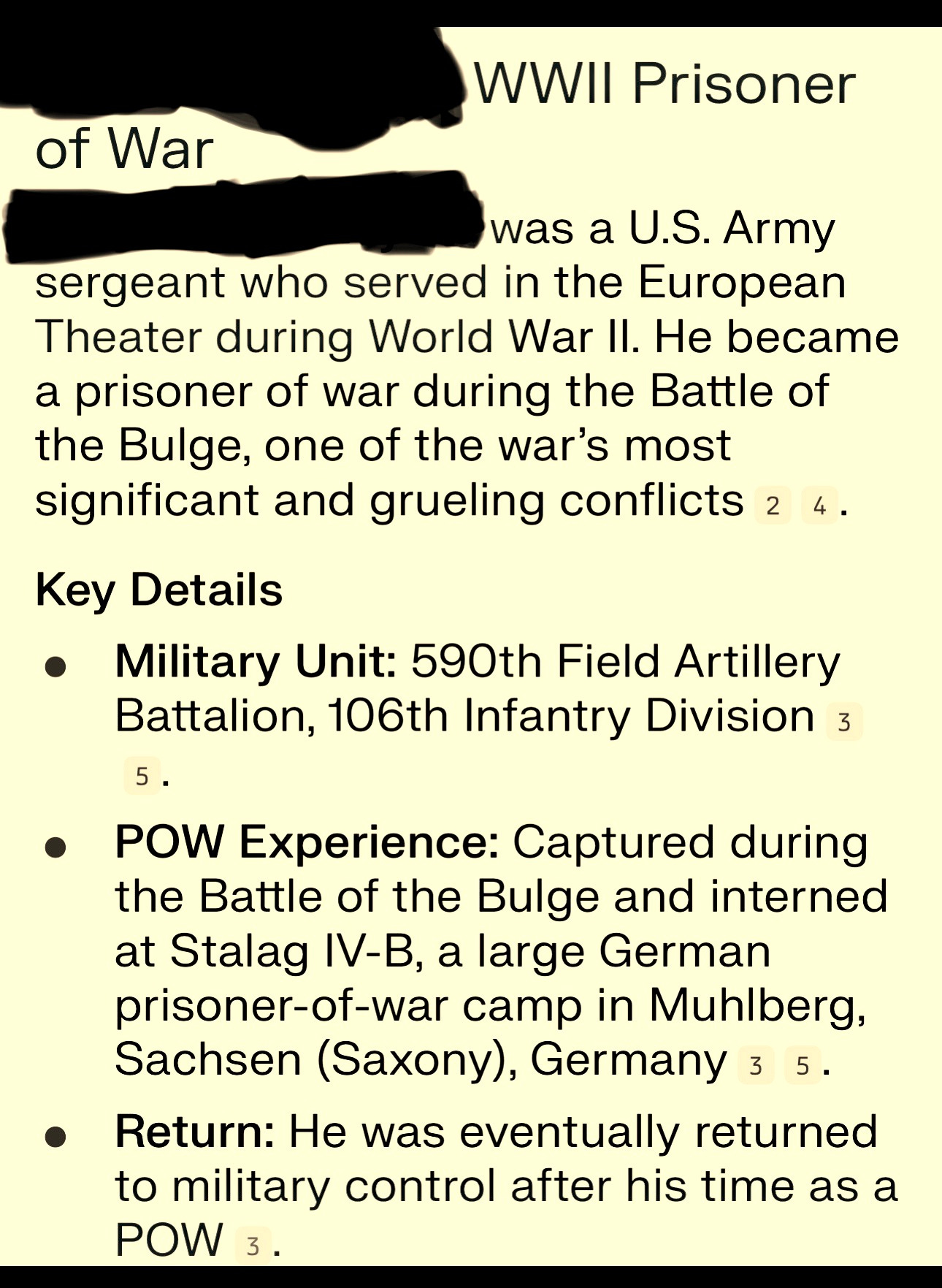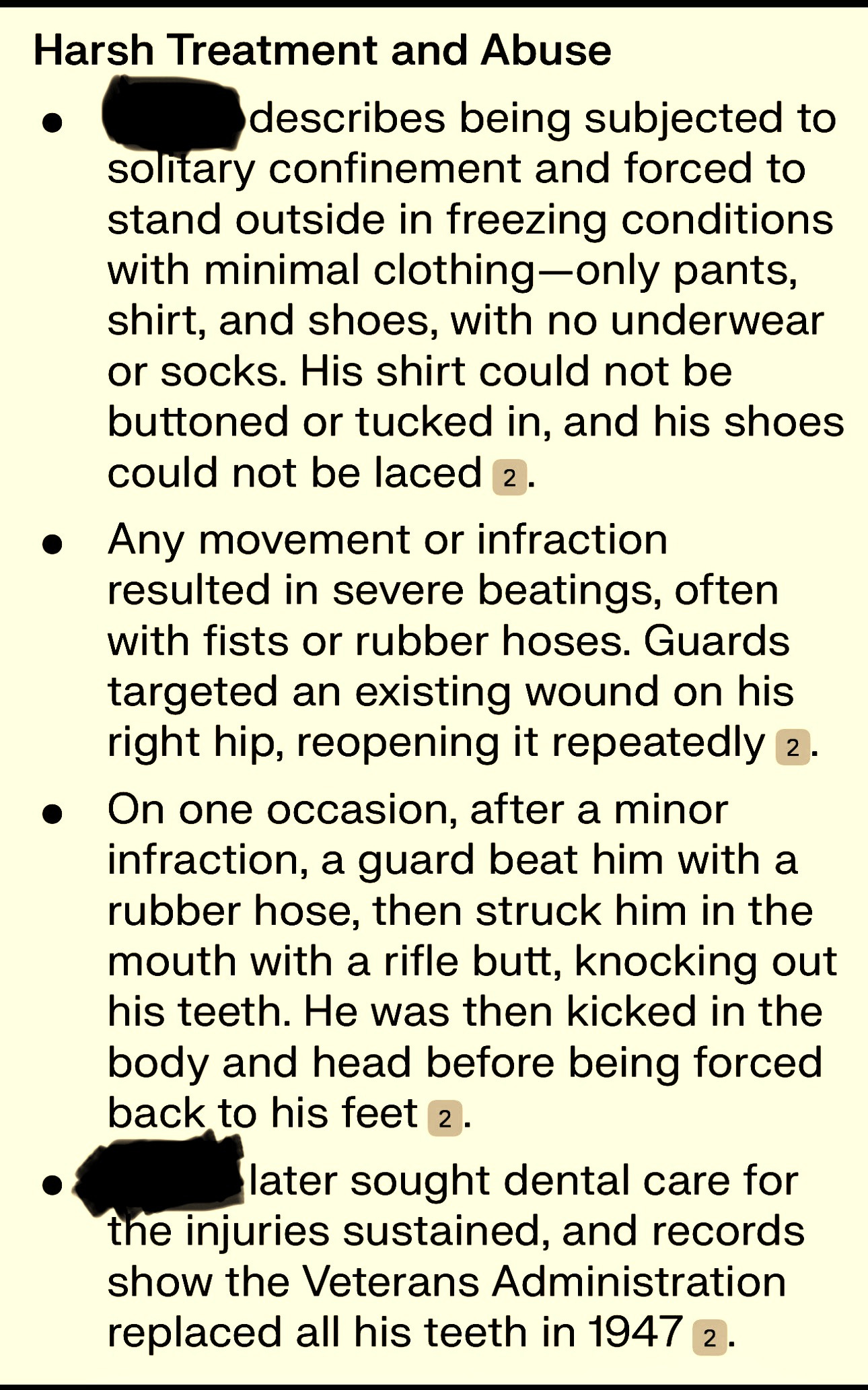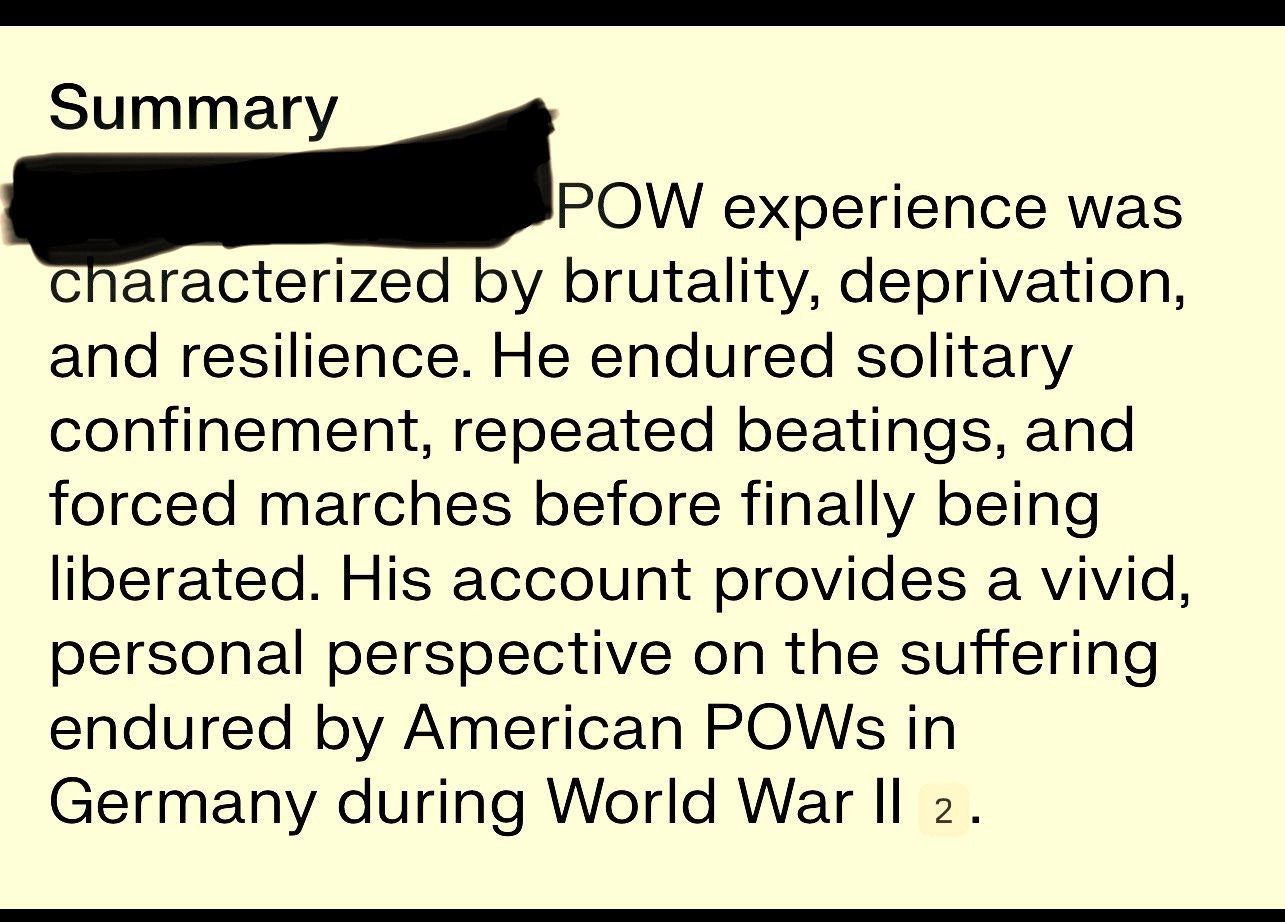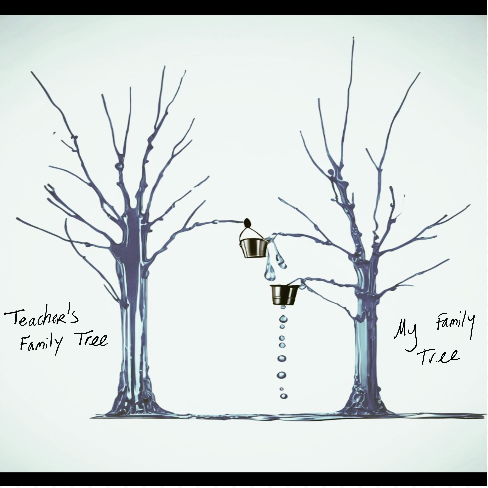Intergenerational Holocaust Trauma: Another Personal Plot Twist
Looks like I caught some Nazi terror along the way...
Hello Friends,
I never counted myself as someone who inherited any intergenerational trauma related to the Holocaust. Now, I’m not so sure.
Recently, I discovered information about my abusive teacher’s family history, and the information suggests that my mind and body suffered abuse rooted in Nazi Germany.
If you haven’t read my previous post about child sex abuse, please do so now by clicking HERE. I also wrote a second post about the situation on my other stack, Too Late For Questions? If you want the full background, you can read that post HERE.
Thanks for catching up.
These revelations about my music teacher sent me down a rabbit hole. I tried to piece together fragmented memories. I reached out to the plaintiff in the case, hoping that her memory might help mine, but she is neither physically nor emotionally up to having a conversation with me about the abuse. At least not yet. I even considered trying psychedelics after reading Amy Griffin’s memoir, The Tell, but both my current therapist and former (now retired) therapist advised against this. Desperate for information, I turned to AI.
I uncovered no relevant information about the music teacher himself, but I quickly learned about his father’s experiences in World War II. He was a United States Army veteran who was captured by the Germans and imprisoned in one of the most brutal POW camps, the very same one as author Kurt Vonnegut, who later wrote Slaughterhouse Five based on his wartime suffering.
Here are a few redacted screenshots from what I uncovered:
I couldn’t believe it. One of the memories about music class that I’ve never forgotten was how the teacher made us repeat the name of the German composer, Johann Sebastian Bach. There was a picture of Bach hanging on the classroom wall, and the teacher would tap the wall with a wooden pointer stick. We had to repeat the composer’s name over and over again, each syllable clearly and loudly annunciated as follows:
Johann. Sebastian. Bach. Bach.
Johann. Sebastian. Bach. Bach.
Johann. Sebastian. Bach. Bach.
I immediately checked Google to confirm that Bach was German. Of course he was.
I’d always thought this forced exercise in class was bizarre. I recall the music teacher’s demeanor as he hit the wall with the wooden stick. He was stern and intimidating.
According to my recollections, the entire class participated in this routine together. A collective group exercise. I wonder if any of my former classmates recall having to do this. Was I alone in the room? Or part of the group?
Whatever the case, I couldn’t help but speculate about the music teacher’s childhood. What did this mean?
According to my research, it seems probable that POWs were forced to recite German phrases and names. Had the music teacher’s father reenacted this abuse with him? I thought it was a logical conclusion.
Moreover, I wondered what else the music teacher endured in childhood. If his father suffered from severe PTSD, who knows what the music teacher was exposed to?
Did it matter? Does it matter?
Yes and no.
On the one hand, there’s absolutely no excuse for the music teacher’s abuse. It was criminal and evil and unethical. He remains responsible for his behavior.
Plenty of survivors of child abuse, myself included, do not go on to abuse others. Lots of us take on opposite roles, assuming child-protective roles both formal and informal.
On the other hand, this information left me breathless.
Whenever in a Jewish space, I’d feel Jewish. When I told people about my conversion, they were shocked. Members of my community couldn’t believe I wasn’t born a Jew. I often heard exclamations along the lines of, “ But you seem so Jewish! You have a Jewish soul.”
If I have a Jewish soul, then I was present at Mount Sinai for Revelation, at least according to religious belief. If Revelation really occurred and my soul was there, I thought I’d “bypassed” Holocaust trauma by being born into a Catholic family.
The fact that I may have caught some trauma straight out of Nazi Germany makes me reconsider my previous sense of what intergenerational trauma refers to. I’d always thought of it as something contained within a bloodline, or one’s family tree. Why didn’t I think about all the ways intergenerational trauma moves not only in a vertical direction, but in a horizontal one too?
Here’s an image I created to depict how I’ve reframed my thinking:
Our society draws lines between the personal and the collective, but these divisions are false. Trauma floods across a society. How many others have been impacted by a history they’re not even aware of?
I wonder.
And if anyone reading this is a former classmate who happens to remember any bizarre details about our music teacher, please reach out.
Thank you.
Much love to all,
xoxo Jen xoxo
NOTE: If you also subscribe to my other stack, Too Late For Questions?, I plan to publish this over there too, so just a head’s up that you’ll see this piece in your inbox twice.










Hi, Jen: There has also been a great deal of research about intergenerational trauma among military veterans of all wars, though most of the studies began with Viet Nam veterans. Your tree image was apt, but regardless how badly a POW is traumatized, it is different in a thousand ways from Holocaust trauma, which was not just about the personal trauma experienced by a single POW who knows that somewhere home and family still exist. Holocaust survivors, like my mother and her sister were only children, 15 and 16 at the time of their traumas, and on top of the torture similar to POW treatment, they experienced the trauma of overwhelming grief for the wiping out of survivors' mostly annihilated extended families, friends, and homes. Both military veterans of Viet Nam and other wars, like in Iraq, returned to pass on intergenerational trauma. But regardless of Bach being German, POW PTSD in whatever language used in that culture, is more similar to POW's in other wars than they are to victims of the Holocaust. Veterans know they are fighting a war. Holocaust victims like my mother often said "One day, everything was the same. And the next, everything changed." She did not sign up for a war. At the time she believed that the entire world had turned into a Holocaust. She watched her mother and baby siblings walk to the gas chambers. She stood for hours in rags in freezing rain like POW's and other imaginative tortures on starvation diets. Your teacher clearly had intergenerational trauma, but it sounds to me more like a combination of his father's POW PTSD along with the possible familial trauma that he, too, as a child suffered from sexual abuse. That's just my opinion based on my 35 year career as a clinical psychologist specializing in PTSD from child abuse and incest while experiencing my own secondary PTSD from my parents' Holocaust stories and the resultant psychiatric aftereffects passed down to me directly as the oldest child, differently from each parent, as PTSD can have many manifestations, some more salient for some than others.